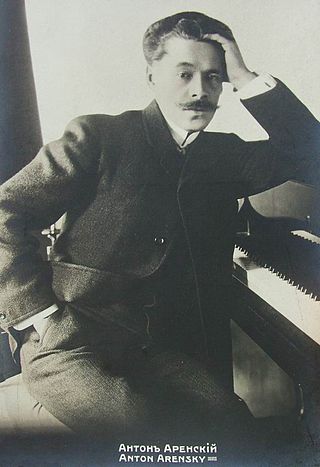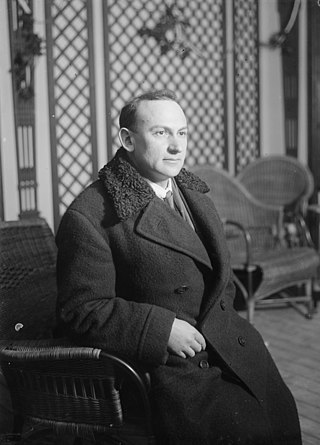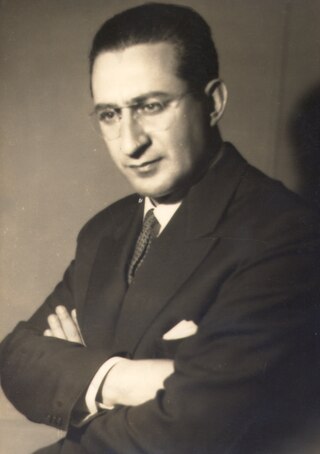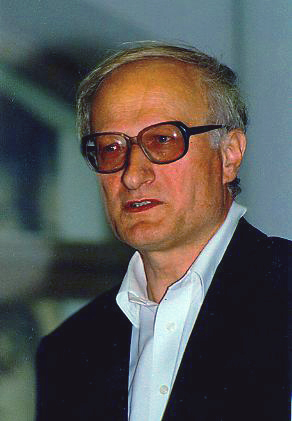
Anton Stepanovich Arensky was a Russian composer of Romantic classical music, a pianist and a professor of music.

Stanislaw Pawel Stefan Jan Sebastian Skrowaczewski was a Polish-American classical conductor and composer.

Alexander Tansman was a Polish composer, pianist and conductor who became a naturalized French citizen in 1938. One of the earliest representatives of neoclassicism, associated with École de Paris, Tansman was a globally recognized and celebrated composer.
Peter Racine Fricker was an English composer, among the first to establish his career entirely after the Second World War. He lived in the US for the last thirty years of his life. Fricker wrote over 160 works in all the main genres excepting opera. He was a descendant of the French playwright Racine.

Ernst von Dohnányi was a Hungarian composer, pianist and conductor. He used the German form of his name on most published compositions.

David Geringas is a Lithuanian cellist and conductor who studied under Mstislav Rostropovich. In 1970 he won the gold medal at the International Tchaikovsky Competition. He also plays the baryton, a rare instrument associated with music of Joseph Haydn.
Edward Gregson is an English composer of instrumental and choral music, particularly for brass and wind bands and ensembles, as well as music for the theatre, film, and television. He was also principal of the Royal Northern College of Music.

Joseph Yulyevich Achron, also seen as Akhron was a Russian-born Jewish composer and violinist, who settled in the United States. His preoccupation with Jewish elements and his desire to develop a "Jewish" harmonic and contrapuntal idiom, underscored and informed much of his work. His friend, the composer Arnold Schoenberg, described Achron in his obituary as "one of the most underrated modern composers".

Ignatz Waghalter was a Polish-German composer and conductor.

Mozart Camargo Guarnieri was a Brazilian composer.

Henry Kimball Hadley was an American composer and conductor.

Jaroslav Řídký was a Czech composer, conductor, harpist, and music teacher.

Emil Szymon Młynarski was a Polish conductor, violinist, composer, and pedagogue.
Eldar Nebolsin is an Uzbek-born classical pianist.

Krzysztof Meyer is a Polish composer, pianist, and music scholar, formerly dean of the Department of Music Theory (1972–1975) at the State College of Music, and president of the Polish Composers' Union (1985–1989). Meyer was professor of composition at the Hochschule für Musik in Cologne from 1987 to 2008, before his retirement.

t
Igor Zubkovsky is a Russian cellist.

The Polish National Radio Symphony Orchestra is one of Poland's radio orchestras and premier musical institutions. It was founded in 1935 in Warsaw and was later re-established in Katowice in 1945. Since 2006 it has been a "National Cultural Institution".
Jonathan Leshnoff is an American classical music composer and pedagogue.

Jean-Marc Fessard is a French classical clarinetist.















